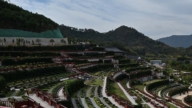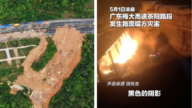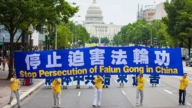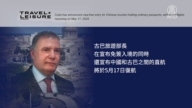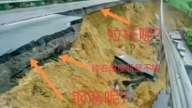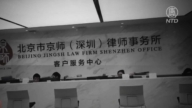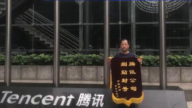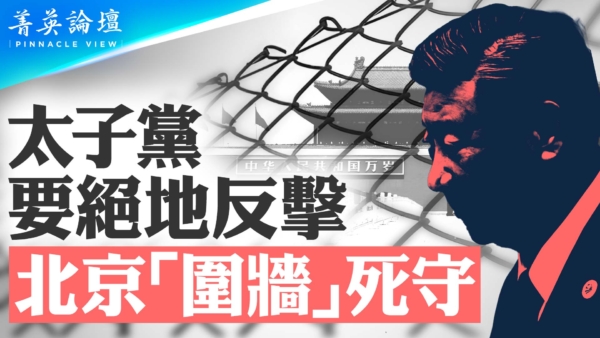【新唐人2011年10月22日讯】“历史不是靠回忆及传说,而是靠真实材料来讲话。”这是台湾国史馆馆长吕芳上说的一句话。台湾国史馆与军情局合作,依据民国政府的军统祖师爷戴笠的手稿,出版“戴笠史料”,内容全部是戴笠在抗战期间的情报手稿汇编而成,他们希望这些史料能把真实还给历史。
曾被视为“最高机密”的戴笠史料与军情档案,首先出版的是“军情战报”、“经济作战”、“忠义救国军”。台湾国防部军情局长汤家伸在为史料汇编写序时强调,大陆坊间近年出版许多国共时期情报工作及戴笠的书册,大部分是以作者单方面的立场阐述,许多扭曲与不实,应适时公布相关资料,以完善军情局史。
负责戴笠史料整理的台湾国史馆研究员吴淑凤表示,一个情报机关愿意主动开放档案,像征民主观念向前一步。
台湾国史馆研究员吴淑凤:“这件事情,我觉得像征的是民主观念的升华,既使是一个情报的机密机关,他们现在也愿意接受历史的评价。”
过去情报工作被神话或被丑化,现在藉由档案的公开,可以还原情报人员的真实面貌。“忠义救国军”就是这个例子,这支军队在当时被中共说成是土匪军队。
台湾国史馆研究员吴淑凤:“他是一个游击部队,并不像大陆方面所宣传的,说他是一个乌合之众,说他是一个土匪的军队,其实他不是,他是一个有组织的一个部队,然后对于当时,在整个江南地区的敌后游击战是有贡献的,这个可以从档案上面可以看的出来。”
吴淑凤说,戴笠当时提倡忠义救国这样一个精神,所以他要强调团体及家庭,同志如手足的一种传统。同时也像征情报单位对领袖忠贞的一个传统。
而长期以来,在中共的宣传中,“中美合作所”被定性为反共、反人民而建立的法西斯集中营,几乎成了所谓“美蒋罪行”的代名词。
“戴笠史料”有关“中美合作所的成立”、“中美合作所的业务”及“军统局隶属组织机构”等三册,预计在12月出版。
台湾国史馆研究员吴淑凤:“中美合作所的位址是在歌乐山,好像是大陆《红岩》、一些宣传品提到,那个是虐待中共战俘的一个地方,那事实上,你从档案上去看的时候,﹙就是﹚中美合作所派过来的人员所居住的地方,是他们工作的一个场所。至于机构本身,它也不隶属军统局,所以它也不是为军统局而服务的,所以这个是可以比较明确的一个区别的。”
在大陆生活将近四十年的史学家苏明表示,利用御用文人妖魔化敌对的一方,这是共产党惯用的意识型态。
前北京大学教授苏明:“大陆曾经共党支使御用文人写了一部小说,叫做”《红岩》,在这里边就是整个开始整个诋毁、妖魔化、丑化当初的中美合作所,在这里边就写到了,所谓这个共党的一帮英雄们,曾经是被抓了关在这里边,如何受到什么样的毒刑,受过美国的48套的毒刑,这里面戴笠就是直接的负责人。”
吴淑凤认为,台湾军情局希望在辛亥革命百年时,对早年的情报历史做定位。吴淑凤说他们无意替戴笠说话,但作为军情组织,戴笠1938年一手建立的军统局,在抗日战争时期的敌后谍报搜查以及中美情报合作方面,对于战争的胜利有着无可抹灭的贡献。
新唐人记者梁欣、黄容、薛莉采访报导。
Dai Li’s Manuscript Published
“History does not depend on memories and legends, but real material,"
said Lu Fangshang, Taiwan’s National History curator.
Taiwan’s military intelligence, working in conjunction with
the Academia Historica, published Dai Li’s Historical Materials,
which is based on a manuscript written by Dai Li,
the founder of the Bureau of Investigation and Statistics
of the Military Council of the KMT government.
All of the content is based on Dai Li’s intelligence material
which was gathered during the war, in the hopes of revealing the true history of China to the public.
Dai Li’s historical and military archives were once regarded as
Top Secret.
The first Chinese Communist Party (CCP) military publications,
including the Military Battlefield Report, the Economic War,
and the Loyalty and patriotism national salvation forces
were written from a very subjective point of view.
Thus, Tang Jiashen, the director of the Intelligence Department of
Taiwan’s Ministry of Defense,
emphasized to the CCP that much of its military history is incomplete
and not based on facts.
Tang said the CCP should support its so-called historical
military facts with solid evidence, including Dai Li’s books.
Researcher Wu Shufeng of the Taiwan National History
Institute, is in charge of compiling research materials.
She said that when an intelligence agency is willing
to publicize its archives, it symbolizes a big step forward in the direction of democracy.
Wu Shufeng: “This symbolizes a shift towards democracy.
Even a secret intelligence agency is now willing to accept
the true account of history."
Intelligence work was either glorified or hated in the past.
But by publishing true archives of China’s military history,
people will finally know the true facts.
Take the Loyalty Salvation Army, as an example.
The CCP referred to it as a “bandit army,” when it was not.
Wu: “It was a organized guerrilla force that worked
behind enemy lines in the southern region of China and not a bandit army as the CCP claims.
This can be proven via historical archives."
Wu said Dai Li promoted the spirit of loyalty to the country,
so he emphasized community, family, and treating coworkers as brothers.
He also emphasized the tradition of showing loyalty to
intelligence officers.
For a long time, the CCP’s propaganda and
its Sino-US cooperation has been characterized as “anti-communist,”
anti-people fascist concentration camps,
almost become synonymous of so-called ‘US-Chiang crime’.
Dai Li’s historical archives detailing the establishment of Sino-U.S.
cooperation, Sino-U.S. Business cooperation,
and the Organization Structure of Intelligence Bureau,
are expected to be published in December.
Wu: “Sino-US cooperation is at Geleshan.
Red Rock, a mainland China book and some propaganda videos,
mentions that Geleshan is the place where CCP prisoners were abused.
Actually from archives, it was said to be a residence for workers
of the Sino-U.S. cooperation, and a working place.
The institution itself was not attached to the Bureau of Investigation
and Statistics, and did not serve the Bureau.
So there is a relatively clear distinction, here."
Historian, Su Ming, had lived in mainland China
for about 40 years.
He said that the CCP used ordained scholars to demonize
the opposing party.
This is a common Communist tactic.
Su Ming, a former professor at Peking University: “The CCP
had once sought support for the mainland,
thus it asked an ordained scholar to write the novel, Red Rock,
in which the original Sino-U.S. cooperation was slandered, demonized, and vilified.
In the novel, the so-called CCP heroes were arrested, detained
and tortured using 48 methods recognized by the United States, while Dai Li personally oversaw things.”
Wu believes that Taiwan’s Military Intelligence Bureau hopes
to make known its intelligence history during the upcoming100th anniversary of the 1911 Revolution.
Wu said they have no intention of speaking on Dai Li’s behalf.
But as a military intelligence bureau, which Dai Li created
in 1938,
it has been incredibly invaluable in securing military
intelligence data behind enemy lines,
Sino-U.S. intelligence cooperation,
and details on how the war was won.
NTD reporters Liang Xin, Huang Rong and Xue Li



